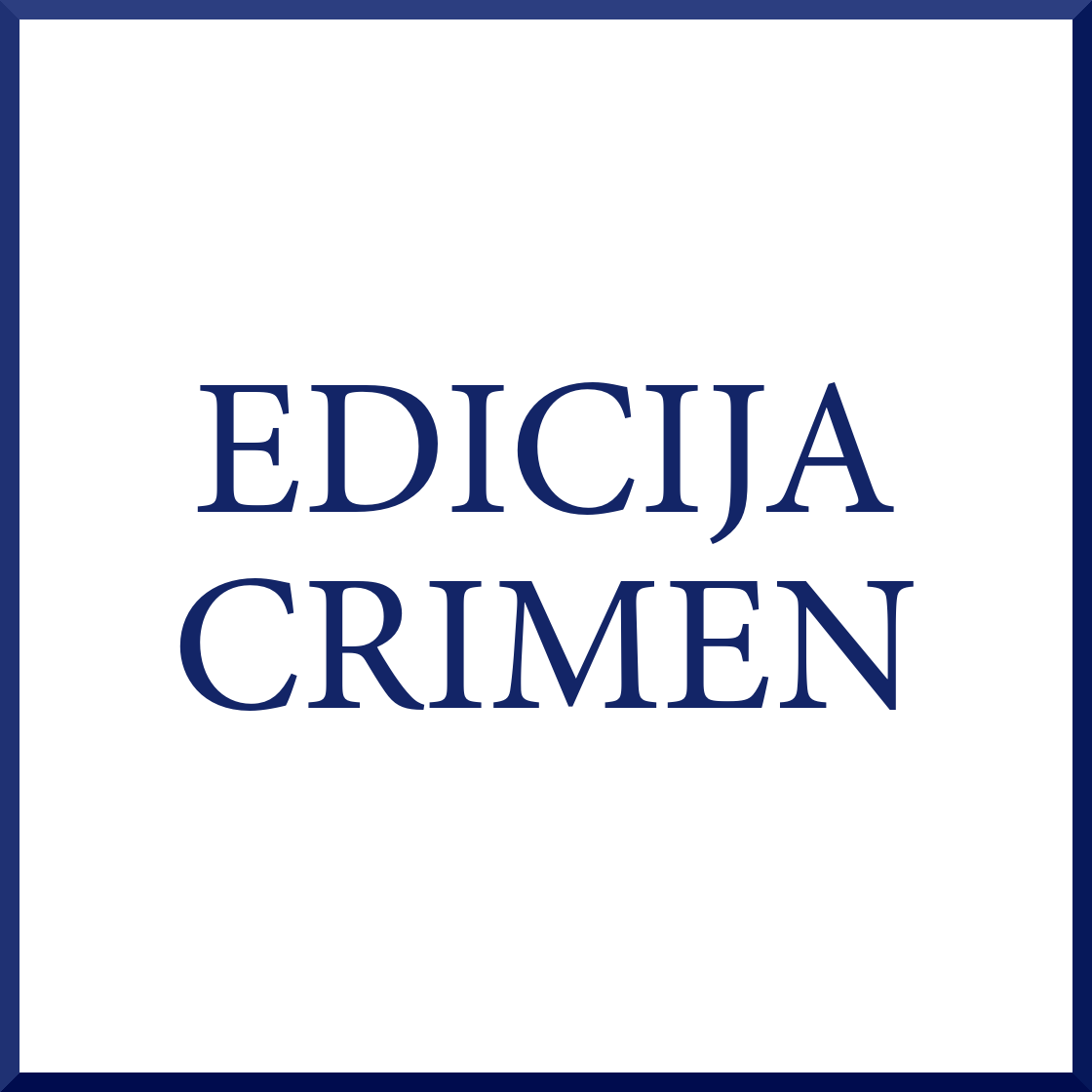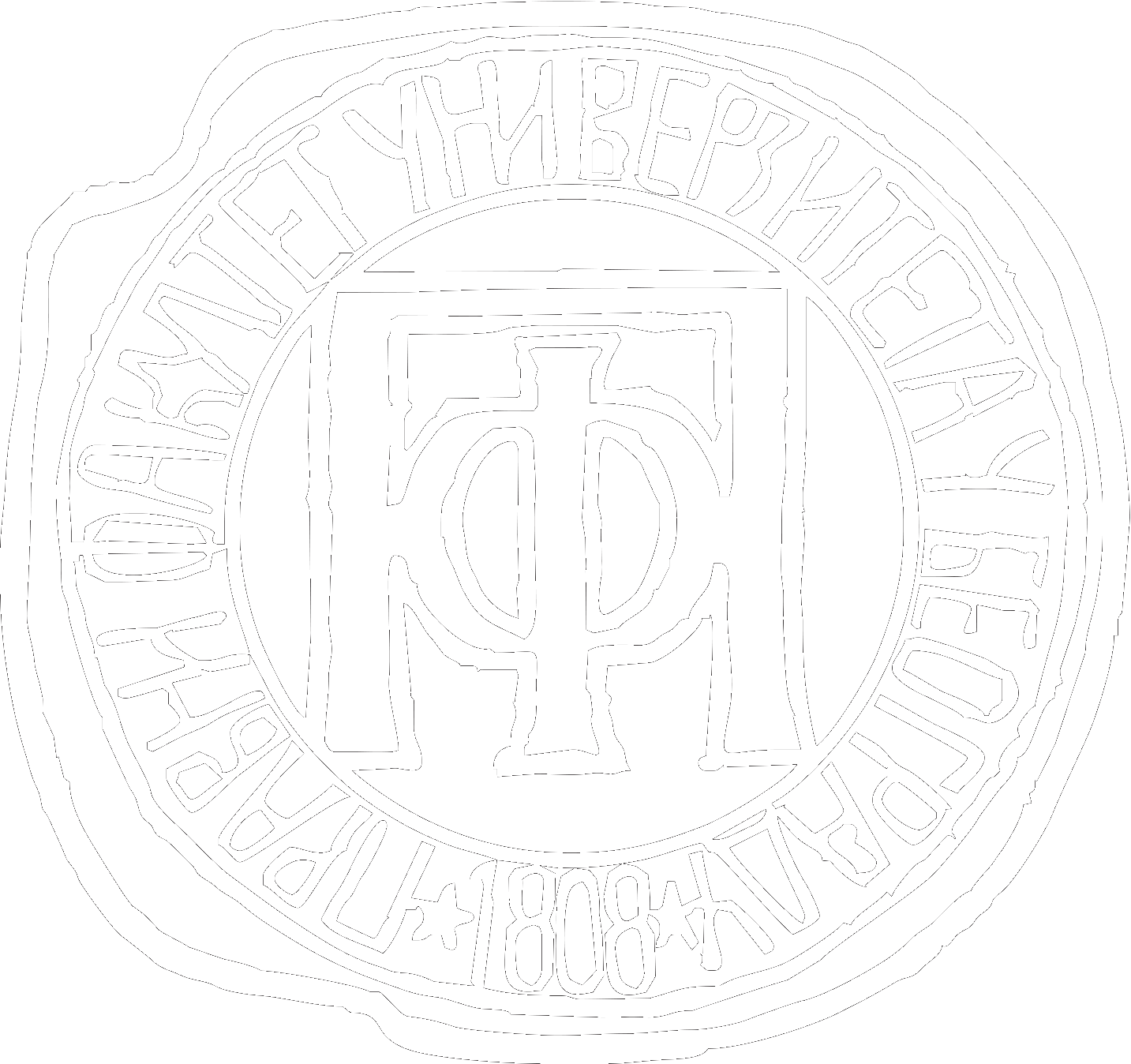Criminal policy ideas in professor Stojanović works
Keywords:
criminal policy; crime control; 'criminal law for enemies'; penal minimalism; ulitima ratio; decriminalizationAbstract
And the shortest insight into some of the papers that professor Zoran Stojanović has dealt with in criminal political topics shows that for thirty years he consistently advocated ideas of criminal and selective minimalism, plead for the reduction of the criminal reaction to the limits determined by the principle of ultima ratio. Already in his first papers, he points to the tendency of criminal legal expansionism in which the norms of this branch of law begin to be used as a means to solve the accumulated problems arising from the crisis of modern society. In an effort to convince citizens that they are doing everything they can to make their sense of vulnerability, government representatives resort to the means that require the least effort: to amend criminal legislation whose incriminations spread a zone of punishability, and the changes in the sanctions system foresee increasingly severe penalties. Therefore, this trend is not only the result of incompetence, but is even more a result of political manipulation. Therefore, instead of the deliberate action of social subjects that should eliminate factors that, for example, lead to violence against peers or in the family, into organized crime and corruption - they resort to retribution and the construction of an omnipotent system of social control. On the contrary, professor Stojanović advocates for decriminalization, not only because of the need to make more effective criminal justice system, but also because of the respect for human rights. In a measured and documented manner, the author points to another worrying tendency in this area - that criminal law is becoming a more and more means of leading an internal policy. Under the pretext that terrorism, organized crime, corruption and pedophilia must be suppressed by the introduction of measures proclaimed as 'war crimes,' lawmakers today often resort to measures that are not only unacceptable from the standpoint of the principles of criminal justice for centuries, but directly affecting both fundamental human rights. It's being built, therefore, what is referred to in German literature as 'the criminal law of the enemy', which the perpetrator does not regard as a human being who violated the law, but as an individual to be eliminated from society. The Professor resolutely opposes such tendencies. He stands up against the beginnings of some 'anti-terrorist', 'anti-mafia' or 'anticorruption criminal laws' and the creation of special bodies for the application of such norms.
Downloads
References
Bavcon, Lj. 1958. Kriminalna politika in njene tendence v socijalistični družbi. Ljubljana.
Bavcon, Lj. 1974. "Mogućnosti novih inkriminacija i dekriminacija u jugoslovenskom krivičnom zakonodavstvu." JRKK, no. 4.
Beccaria, C. 1987. Dei delitti e delle pene / Consulte criminali, edited by Giuseppe Armani. Milano.
Chambliss, W. 1976. "The Saints and Roughnecks." In Whose Law? What Order? A Conflict Approach in Criminology, edited by W. Chambliss and M. Mankoff, New York.
Christie, N. 1981. Limits of Pain. Oslo.
Čubinski, M. 1937. "Kriminalna politika–Pojam, sadržaj i odnos prema nauci krivičnog prava." Beograd.
Garland, D. 2002. The Culture of Control–Crime and Social Order in Contemporary Society. Chicago. https://doi.org/10.1093/acprof:oso/9780199258024.001.0001
Hulsman, L., and J. de Celis. 1982. Pienes perdues–le système pénal en question. Paris.
Ignjatović, Đ. 1985. "Dekriminalizacija i inkriminalizacija u savremenom krivičnom pravu." JRKK, no. 1.
Ignjatović, Đ. 2014. "Stanje i tendencije kriminaliteta maloletnika u Srbiji–analiza statističkih podataka." Crimen–časopis za krivične nauke, no. 2.
Ignjatović, Đ. 2015. "Epidemiološka kriminologija." Sociologija, no. 2.
Ignjatović, Đ. 2016. Kriminologija, 13th ed. Beograd.
Lambourne, W. 2009. "Transnational Justice and Peacebuilding after Mass Violence." International Journal of Transnational Justice, no. 1. https://doi.org/10.1093/ijtj/ijn037
Mathiesen, T. 1990. Prison on Trial. London.
Milutinović, M. 1984. Kriminalna politika. Beograd.
Stojanović, Z. 1984. "Ka politici dekriminalizacije." Arhiv za pravne i društvena nauke, no. 2.
Stojanović, Z. 1987. Granice, mogućnosti i legitimnost krivično pravne zaštite. Beograd.
Stojanović, Z. 1989. "Organizovani kriminalitet i pitanja zaštite i ostvarivanja ljudskih prava." In Prava čoveka i savremena kretanja u kriminalnoj politici, edited by V. Vasiljević, Beograd.
Stojanović, Z. 1991. Politika suzbijanja kriminaliteta. Novi Sad.
Stojanović, Z. 2009. "Proces stvaranja krivičnog zakonodavstva i suzbijanje kriminaliteta." In Stanje kriminaliteta u Srbiji i pravna sredstva reagovanja, III deo, edited by Đ. Ignjatović, Beograd.
Stojanović, Z. 2010. "Krivično pravni ekspanzionizam i zakonodavstvo Srbije." In Stanje kriminaliteta u Srbiji i pravna sredstva reagovanja, IV deo, edited by Đ. Ignjatović, Beograd.
Stojanović, Z. 2011. "Krivično pravo u doba krize." Branič, no. 1–2.
Stojanović, Z. 2012. "Kaznena politika u Srbiji: Sukob zakonodavca i prakse." In Kaznena reakcija u Srbiji, II deo, edited by Đ. Ignjatović, Beograd.
Stojanović, Z., and D. Kolarić. 2014. Krivično pravno suzbijanje organizovanog kriminaliteta, terorizma i korupcije. Beograd.
Stojanović, Z. 2016. "Krivično pravni minimalizam versus krivično pravni maksimalizam–dvadeset pet godina kasnije." Pogovor In Politika suzbijanja kriminaliteta, Beograd.
Wickman, P., and P. Whitten. 1980. Criminology–Perspectives on Crime and Criminality. Lexington.
Young, J. 1999. The Exclusive Society. London.
Zipf, H. 1989. Politica criminale. Milano.

Downloads
Published
How to Cite
Issue
Section
License
Copyright (c) 2018 Đorđe Ignjatović

This work is licensed under a Creative Commons Attribution 4.0 International License.
The authors retain copyright and grant the journal the right of first publication, allowing others to share the work with proper attribution to the authors and acknowledgment of its original publication in this journal.










